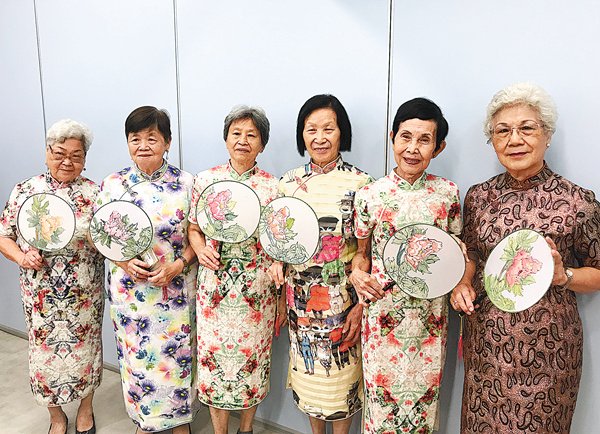著裝規(guī)范 Chinese dress code
China Today 2024-03-01 17:22


Let's begin at the beginning. In the character 初 (chū), beginning, we can find the character 衣 (yī), clothing, and 刀 (dāo), knife. Thus, a new garment begins with cutting the cloth. This is the subject with which my article begins.
Clothes are cultural artifacts which have been around for thousands of years. The ancient script on oracle bones for 衣 vividly resembles a dress with sleeves and a collar. Shuo Wen Jie Zi (《說文解字》, shuō wén jiě zì), the first book on the configuration and origin of Chinese characters, defines clothing as the thing used to cover the body: 衣所以蔽體者也 (yī suǒ yǐ bì tǐ zhě yě). In ancient Chinese there is an important difference between clothes for the upper body 衣 (yī) and those for the lower body 裳 (cháng). Today 衣裳 (yī shang) means clothing in general. It is combined with the verb 穿 (chuān), to wear or put on.
If the clothes do not make the man, at least they protect him against heat and cold. For Chinese people clothing is the first essential of material wellbeing: the basic needs of living are 衣食住行 (yī shí zhù xíng), clothes, food, shelter and transport. Other expressions with the character for clothing include notably 豐衣足食 (fēng yī zú shí), well-clad and well-fed, and 錦衣玉食 (jǐn yī yù shí) , rich clothes and fine foods, or a life of luxury.
In Chinese there are many words and terms for clothing. 衣服 (yī fu) is interchangeable with 衣裳. 服裝 (fú zhuāng) and 著裝 (zhuó zhuāng) mean the same, but are more formal expressions. 服裝行業(yè) (fú zhuāng háng yè) is the garment industry. 衣帽 (yī mào) signifies both what you wear over the body and on the head. Many young people nowadays closely follow 時尚圈 (shí shàng quān), the world of fashion. For a nice night out you might 穿著打扮 (chuān zhuó dǎ bàn), dress up and preen.
In China, like in the West, people avoid 以貌取人 (yǐ mào qǔ rén), judging people by their looks. However, there is also an amusing expression to describe a superficial person who only cares about appearances: 他是"外貌協(xié)會"的 (tā shì wài mào xié huì de), he is in the business of appearance, a wordplay on the words 外貿(mào) (wài mào), foreign trade, and 外貌 (wài mào), outward appearance. Some people dress elegantly to suit a dignified personality 衣冠楚楚 (yī guān chǔ chǔ), others are 衣冠禽獸 (yī guān qín shòu), beasts in human dress.
Then we can choose to have clothing 量身定做 (liàng shēn dìng zuò), made to measure, by a 裁縫 (cái feng), tailor. If you prefer a more traditional costume you can choose a 中山裝 (Zhōng shān zhuāng), literally Sun Yat-sen suit (known more commonly in the West as a jacket with mandarin collar), or the 唐裝 (Táng zhuāng), Tang suit. The fabric can be made even more elaborate with 刺繡 (cì xiù), embroidery. Both are considered 晚禮服 (wǎn lǐ fú), evening wear, but not quite equal to the three-piece 西服 (xī fú), Western suit.
The traditional wear for Chinese women is the 旗袍 (qí páo), literally Manchu dress, cheongsam. It is descended from traditional Manchu costume. The tube-shaped dress is available in many 款式 (kuǎn shì), styles, and you are certain to find a good fit. If you don't like 絲綢 (sī chóu), silk, you can choose a less expensive fabric like 棉料 (mián liào), cotton, or 麻料 (má liào), flax.
The long tunics worn in China at the beginning of the 20th century are called 長袍 (cháng páo), gowns, which could be worn under a 馬褂 (mǎ guà) jacket. In ancient China yellow was the exclusive color of the royal family, so the emperor's clothes were referred to as 黃袍 (huáng páo), yellow robe. And the gown for monks is 僧袍 (sēng páo). The typical traditional clothes of China are the 漢服 (Hàn fú), literally Han clothes, a loose tunic similar to a bathrobe, which still can be seen at celebrations of historical events.
來源:China Today
編輯:萬月英

















 英語點津微信
英語點津微信 雙語小程序
雙語小程序